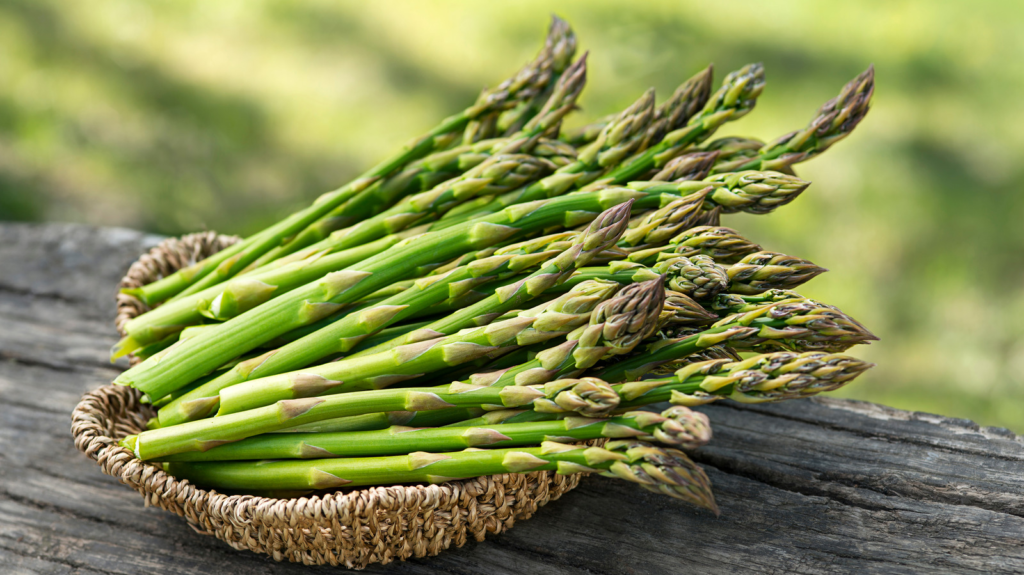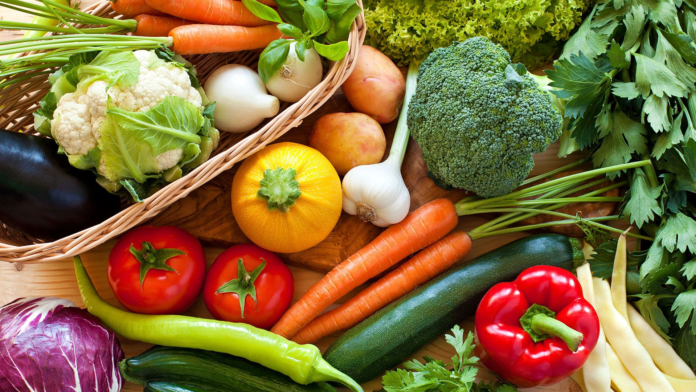Packing your plate with healthy vegetables is not just about getting your greens; leafy greens are a great place to start. The vibrant world of vegetables offers a treasure trove of vitamins, minerals, and potent plant compounds, all working together to boost your overall health.
From heart-healthy nitrates to cancer-fighting antioxidants, these 19 nutrient powerhouses will transform your meals into flavor and health explosions.
Healthy vegetables
1. Broccoli
Take broccoli, for example. This versatile cruciferous vegetable is a nutritional powerhouse. Not only is broccoli a good source of vitamins C and K, but it also has a unique compound called sulforaphane, which has been linked to various health benefits.
Whether you enjoy it raw with a dip or roasted to crispy perfection, broccoli is a delicious way to add a punch of health to your diet.
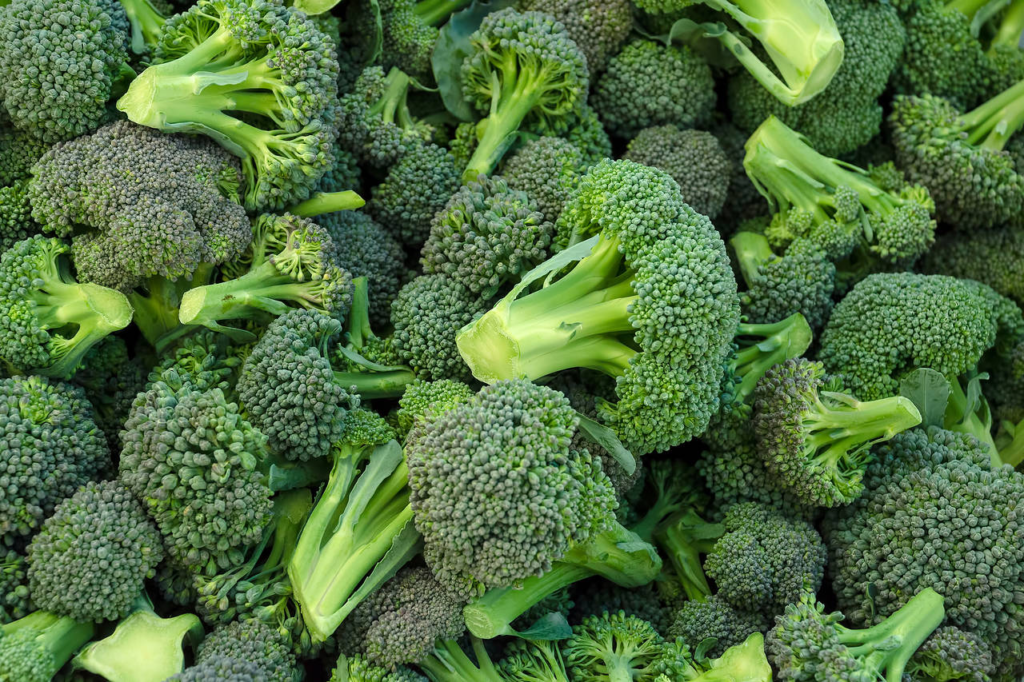
2. Peas
Don’t underestimate the tiny but mighty pea. These vibrant green spheres pack a surprising nutritional punch. Peas are a big source of plant-based protein and fiber, keeping you feeling fuller for longer. They’re also loaded with vitamins A, C, and K, essential for maintaining good vision, a robust immune system, and healthy blood clotting.
So next time you want a quick and easy veggie boost, pop open a pod of peas.
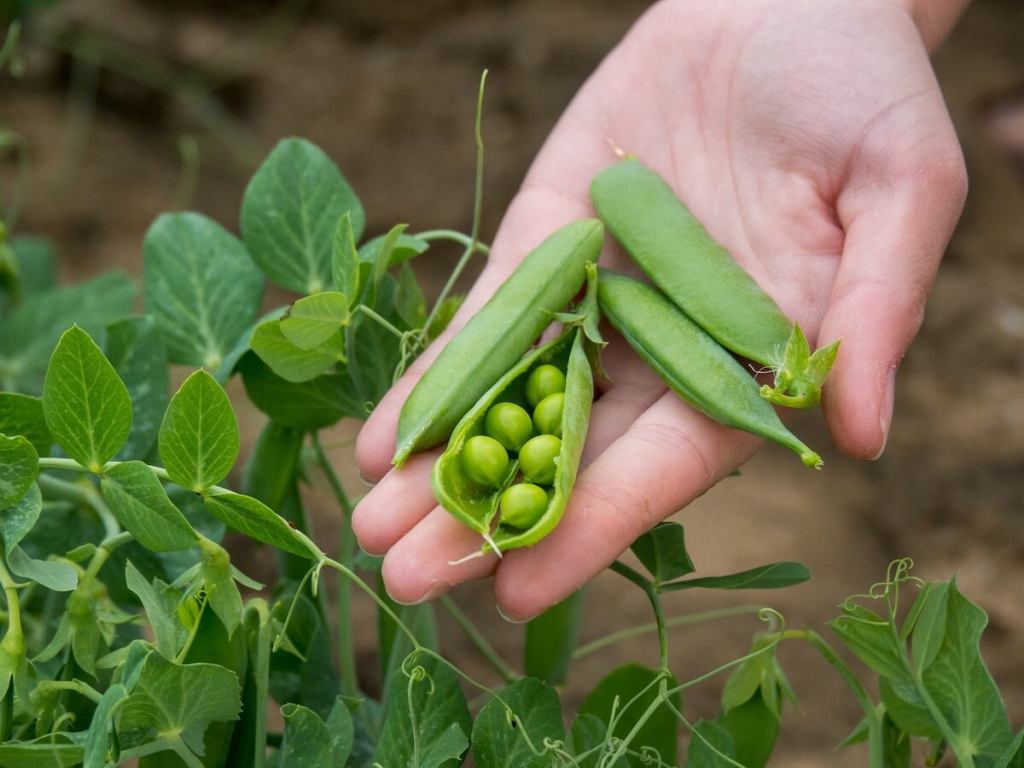
3. Kale
Kale is no longer just a trendy green; it’s a bona fide health champion. This leafy powerhouse is brimming with vitamins A, C, and K, fiber, and antioxidants.
Kale might be known for its slightly bitter taste, but with creativity, it can be incorporated into smoothies, stir-fries, or even baked into satisfying chips.
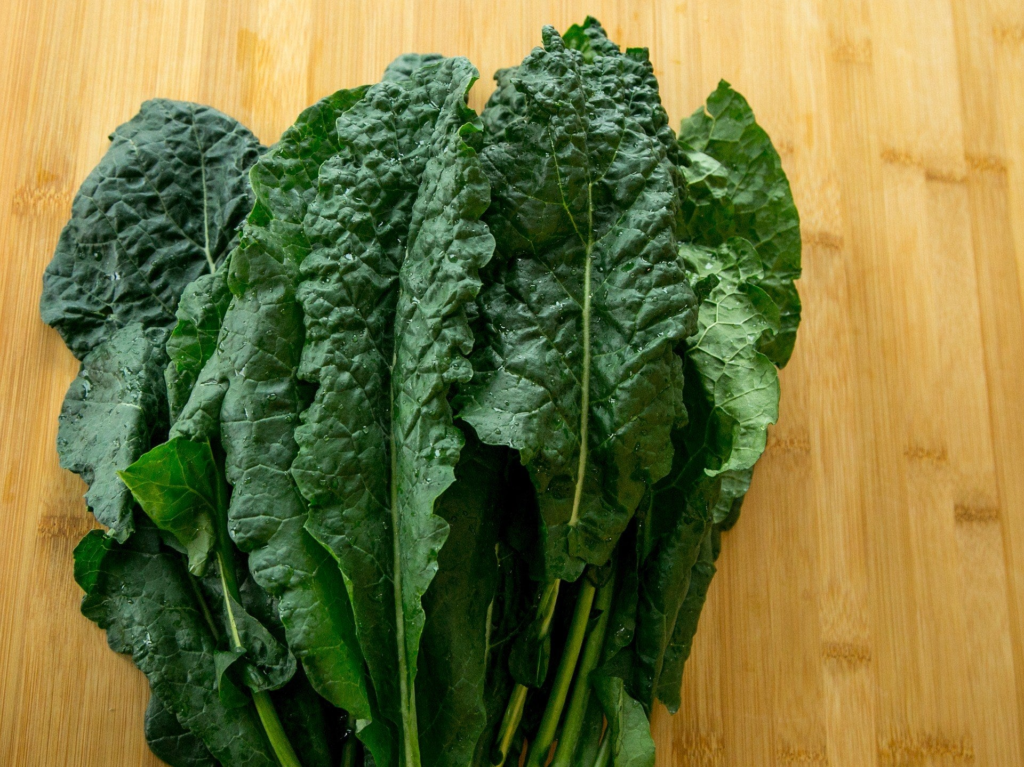
4. Spinach
Popeye wasn’t wrong about spinach. This leafy green lives up to its cartoon reputation. Spinach is a nutritional superstar, loaded with vitamins A, C, and K, iron for healthy blood flow, and folate, important for cell growth.
Plus, spinach is incredibly versatile. Enjoy it fresh in salads, wilt it into soups or pasta dishes, or sneak it into baked goods for a hidden veggie boost.
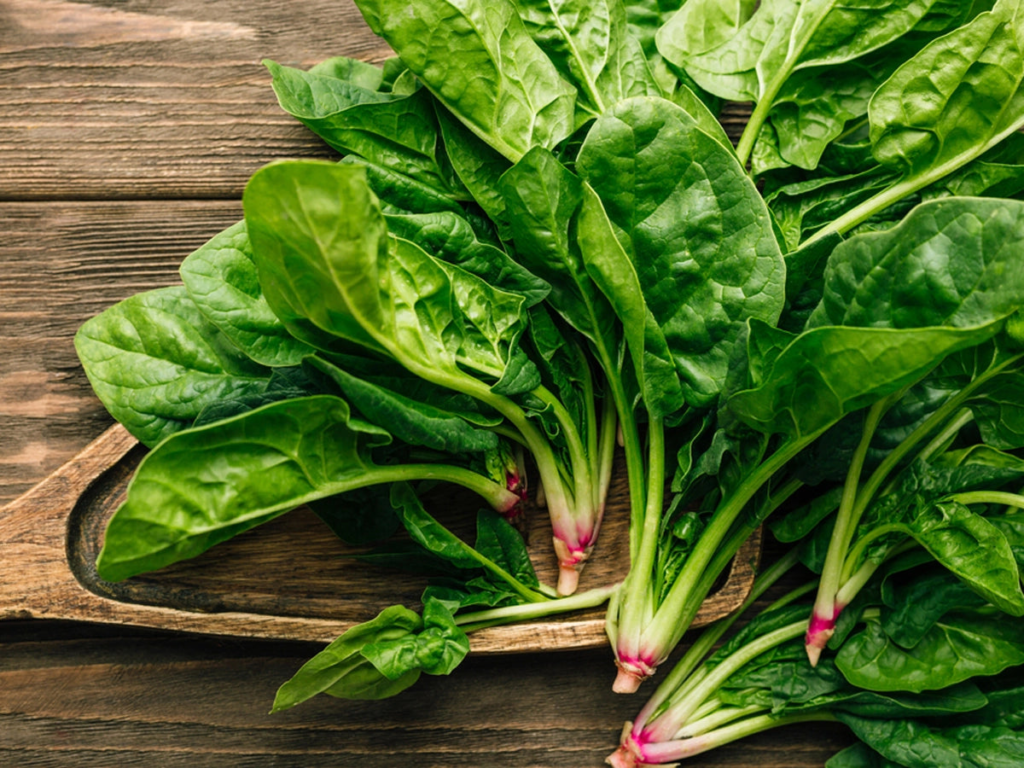
5. Tomatoes
Don’t let the debate about whether tomatoes are fruits or vegetables distract from their impressive health benefits. Tomatoes are a vibrant source of lycopene, an antioxidant that reduces the risk of heart disease and certain cancers.
They’re also packed with vitamin C, which is beneficial for a healthy immune system, and potassium, which helps regulate blood pressure. Whether sliced into salads, blended into sauces, or enjoyed on their own, tomatoes are a delicious way to add a touch of sunshine and a potent dose of health to your diet.
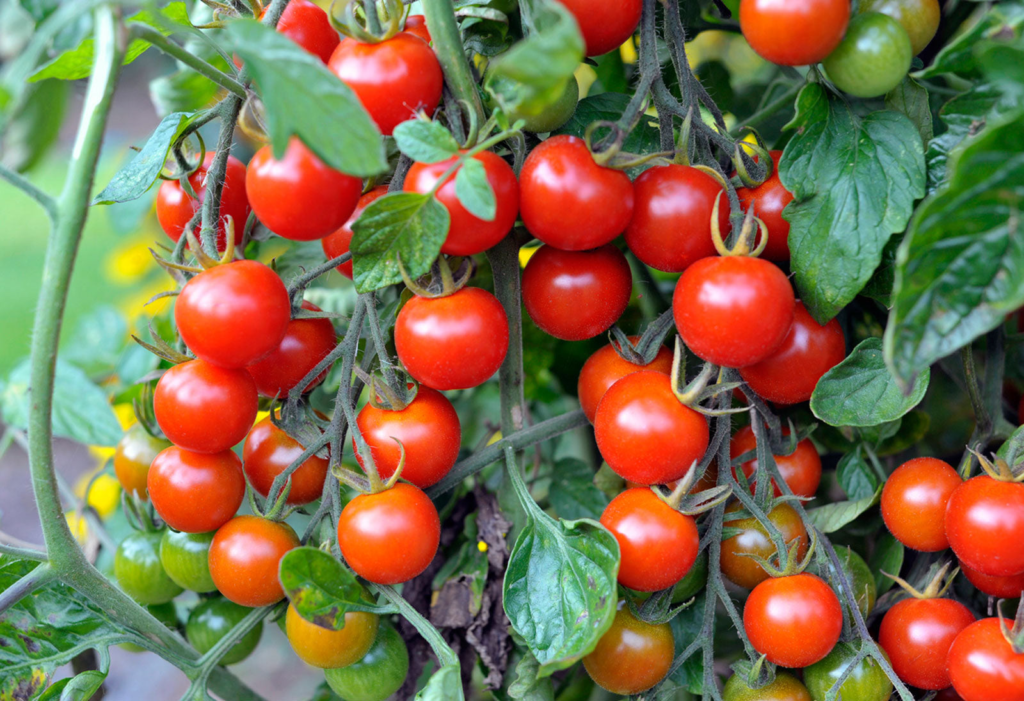
6. Carrots
Crunchy and colorful, carrots are more than just a satisfying snack. They’re brimming with beta-carotene, which your body converts into vitamin A, which is basic for maintaining healthy vision. Carrots also boast a good amount of fiber, aiding digestion and keeping you full. They’re a natural source of antioxidants, protecting your cells from damage.
Enjoy them raw with a hummus dip, roasted for sweetness, or even grated and snuck into baked goods for a delightful nutritional boost.

7. Beets
Under their vibrant red exterior, beets hide a wealth of health benefits. Filled with essential vitamins and minerals like folate and potassium, beets are particularly noteworthy for their content of inorganic nitrates.
Once converted in your body, these nitrates can improve blood flow, potentially lowering blood pressure and boosting exercise performance. Enjoy beets roasted for a naturally sweet side dish, pickled for a tangy twist, or even grated raw into salads for a beautiful and nutritious addition.
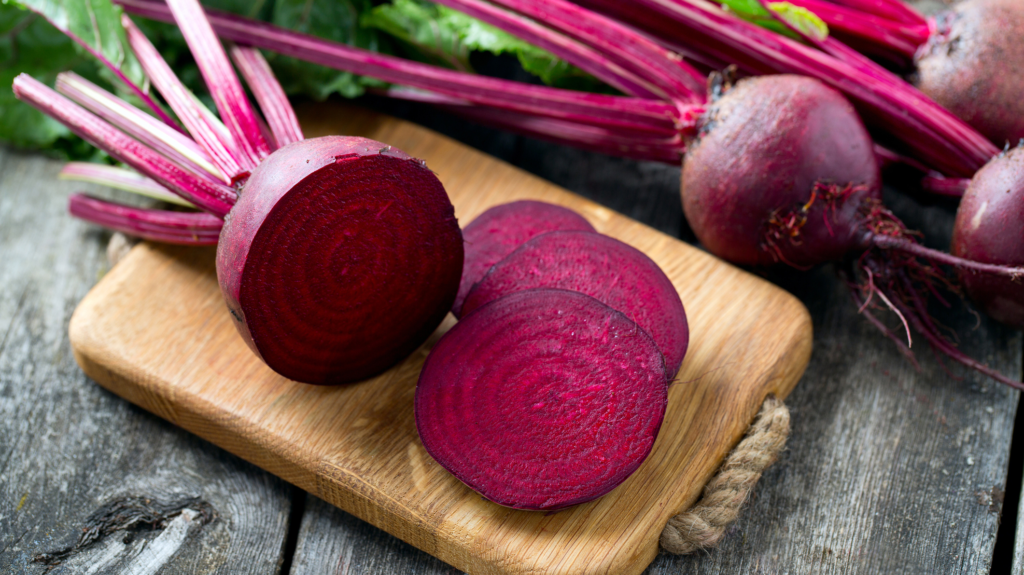
8. Sweet potatoes
These vibrant orange root vegetables are loaded with beta-carotene, which your body converts into vitamin A for healthy eye sight and a robust immune system.
Sweet potatoes are also a powerhouse of fiber, inducing gut health and keeping you feeling fuller for longer. Plus, they boast a range of essential vitamins and minerals, making them a versatile and incredibly beneficial addition to any diet.
Enjoy them roasted, mashed, or even incorporated into sweet potato fries for a healthier touch on a classic.
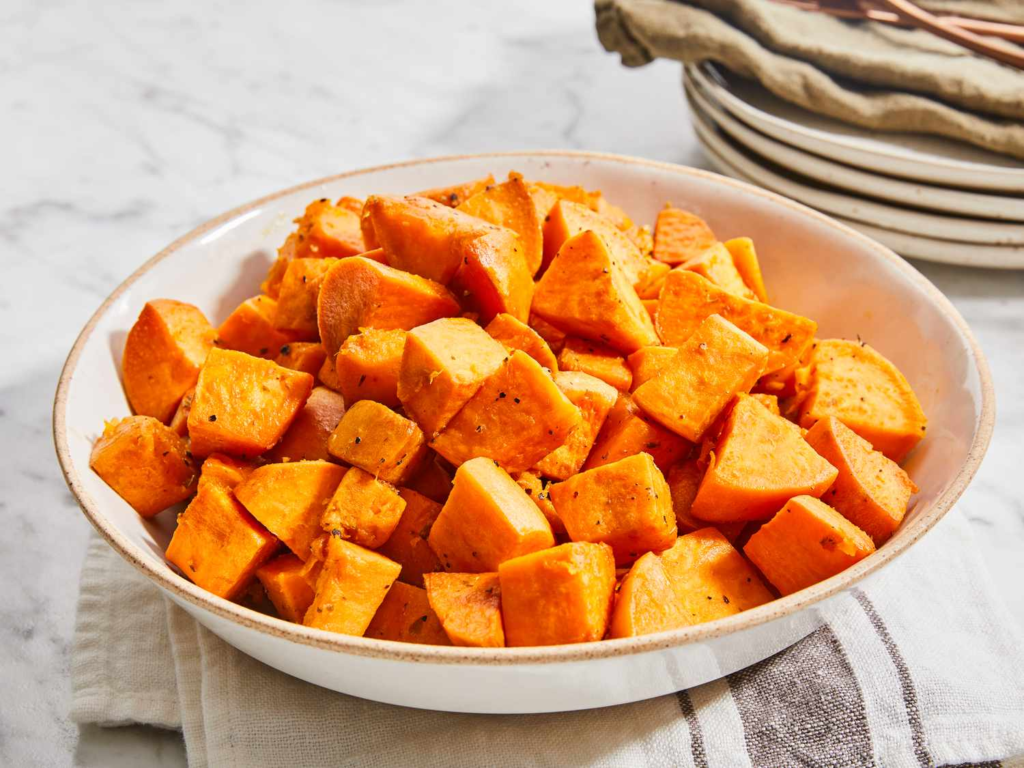
9. Onions
Onions are not just a flavor booster in your favorite dishes; they’re a surprising source of health benefits. This humble bulb contains vitamin C, a key player in immune function and collagen production.
Onions also boast prebiotics, which promote gut health and digestion. Additionally, they contain unique sulfur compounds that may help lower blood glucose levels and minimise inflammation.
So, next time you chop onions for a recipe, rejoice in knowing you’re adding a powerful dose of health to your meal.
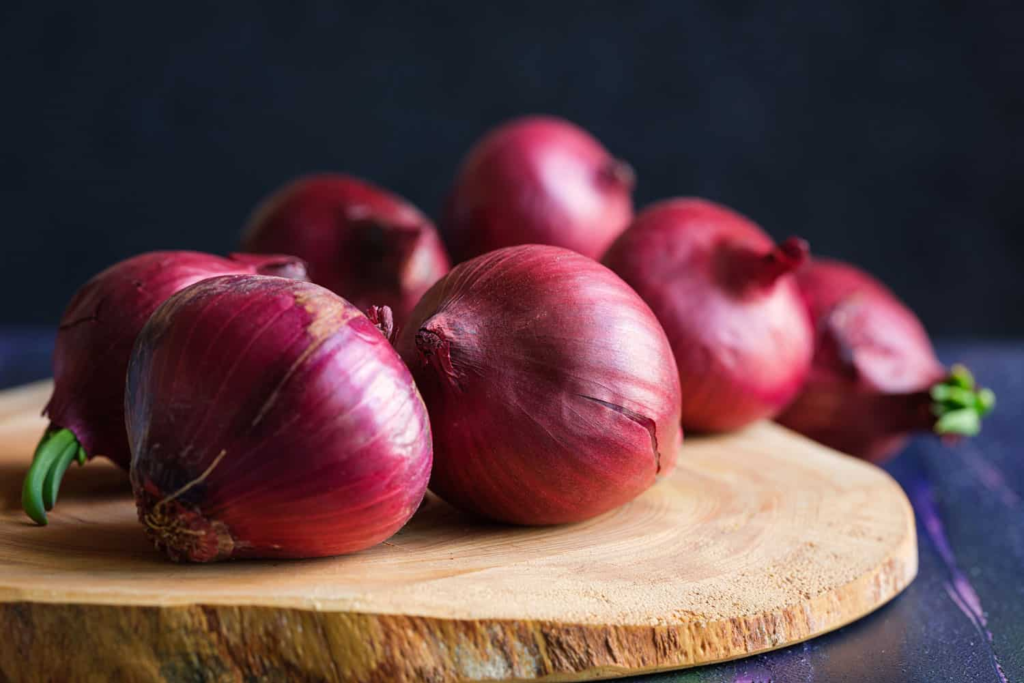
10. Garlic
Garlic might be small, but its health benefits are mighty. While a flavor powerhouse in cooking, this pungent bulb goes far beyond adding zest to your dishes. Garlic boasts a compound called allicin, which is believed to be responsible for many of its health benefits.
Studies suggest garlic may help lower blood pressure and cholesterol, effectively reducing the risk of heart disease. It’s also thought to have immune-boosting properties and may offer protection against certain cancers.
So, the next time you want to add flavor and improve your health, reach for the garlic.
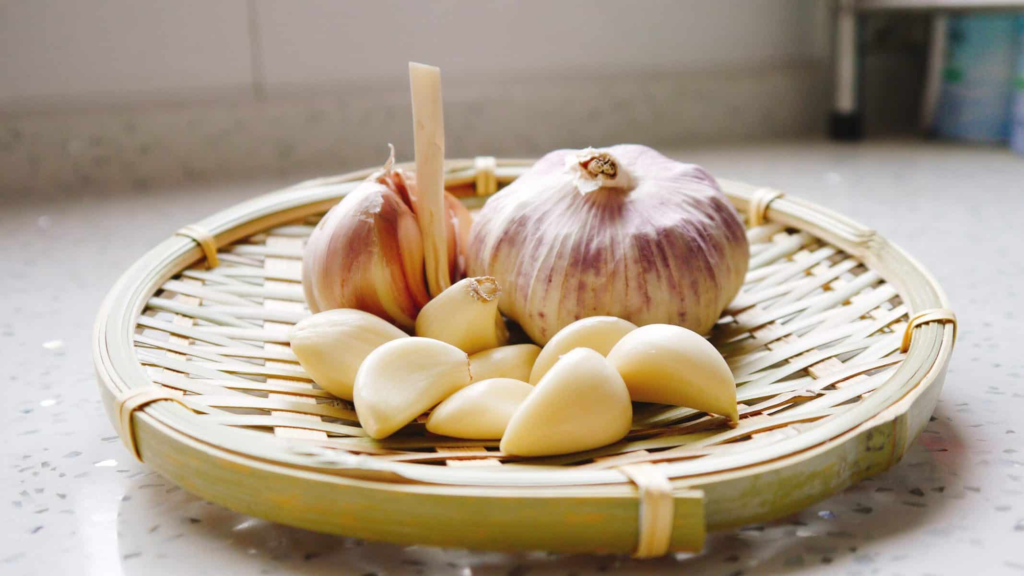
11. Fermented vegetables
Fermented vegetables are not just tastier than their fresh counterparts; they’re a nutritional powerhouse. The fermentation process unlocks a wealth of health benefits. Friendly bacteria, or probiotics, thrive during fermentation, aiding digestion and potentially boosting gut health.
Fermented vegetables are also often richer in vitamins and minerals compared to their unfermented counterparts, thanks to the work of those same bacteria. Kimchi, sauerkraut, and fermented pickles are just a few examples of these delicious and health-promoting options.

12. Swiss chard
Don’t let Swiss chard’s resemblance to kale fool you; it’s a nutritional champion in its own right. This leafy green vegetable boasts a whopping dose of vitamin K, which is significant for clotting and bone power.
Swiss chard is also rich in vitamins A and C, providing a powerful antioxidant punch to protect your cells and boost a healthy immune system. Plus, its vibrant stalks are a good source of fiber, helping digestion and keeping you feeling fuller for longer.
Enjoy Swiss chard sauteed, roasted, or incorporated into soups and stews for a delicious and incredibly nutritious addition to your diet.
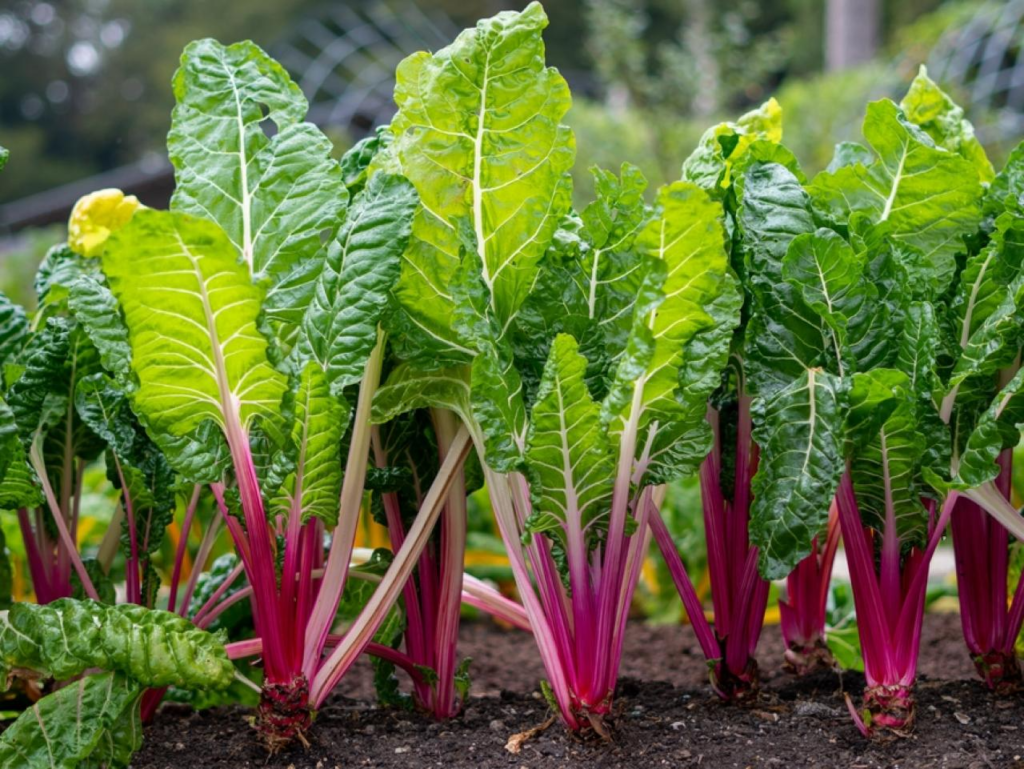
13. Brussels sprouts
Brussels sprouts, those miniature cabbages, are more than just a potentially bitter side dish. These cruciferous vegetables are packed with nutrients, particularly vitamins C and K. Vitamin C is critical for immune function and collagen production. In contrast, vitamin K is crucial for blood clotting and strong bones. Brussels sprouts may also hold some hidden health benefits.
Brussels sprouts contain sulforaphane, a compound linked to reduced inflammation and potentially even a lower risk of certain cancers. So, the next time you see them on the menu, don’t be afraid to try them.
With some creativity in the kitchen, they can be roasted to crispy perfection or incorporated into flavorful stir-fries for a delicious and nutritious boost to your diet.
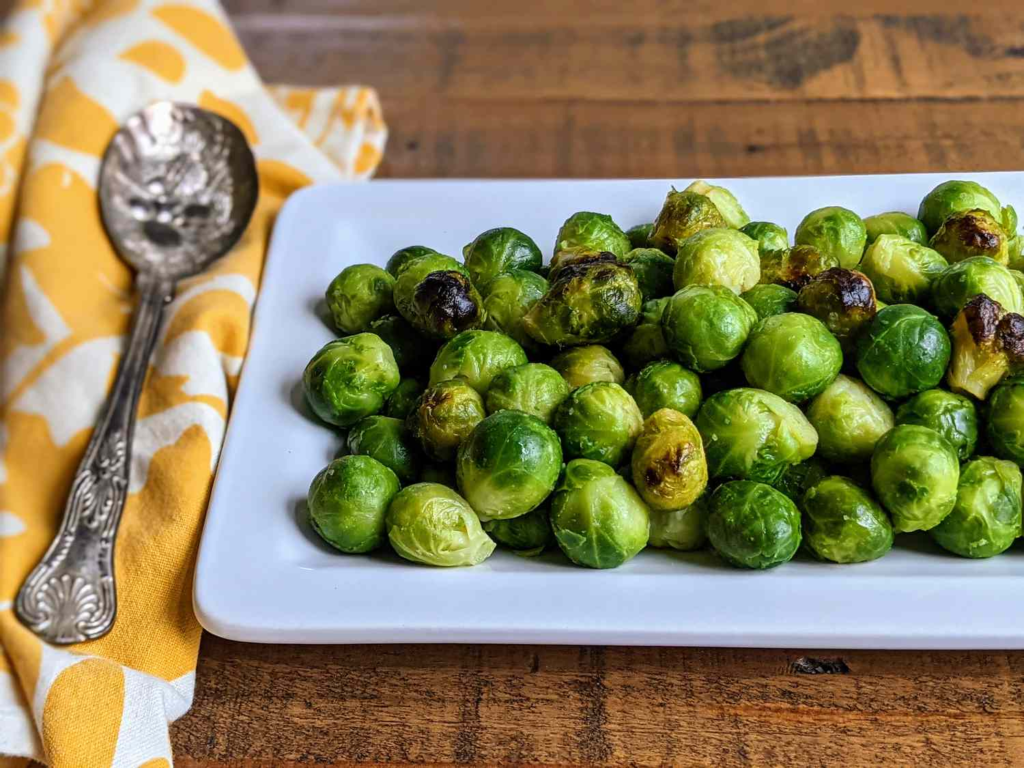
14. Seaweed
Dive into the world of healthy vegetables and explore seaweed. This unique ocean gem isn’t just a textural curiosity in sushi; it’s a nutritional powerhouse. Seaweed boasts an impressive mineral profile, particularly iodine, which is essential for thyroid function and brain health.
It’s also a good source of vitamins and fiber, including soluble fiber, which aids digestion and regulates blood sugar. Varieties like wakame and kombu are packed with umami flavor, making them a delicious and healthy addition to soups, salads, or even sprinkled over popcorn for a salty, nutritious kick.
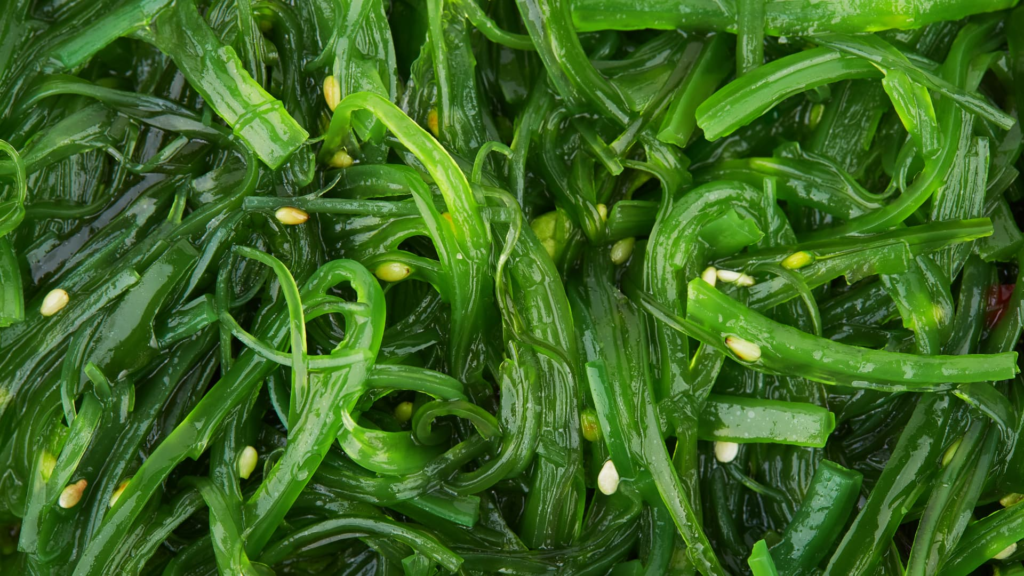
15. Cauliflower
Cauliflower isn’t just a versatile veggie waiting to be transformed into rice or pizza crust. This cruciferous wonder is a nutritional powerhouse.
Packed with vitamins C and K, cauliflower provides a one-two punch for a healthy immune system and strong bones. It’s also rich in fiber, aiding digestion and keeping you feeling fuller for longer.
But the benefits don’t stop there. Cauliflower contains unique antioxidants and compounds like sulforaphane, which have been linked to reduced inflammation and potentially even a lower risk of certain cancers. So, next time you’re looking for a delicious and incredibly nutritious addition to your diet, reach for the cauliflower.

16. Bell peppers
Bell peppers are like little pockets of sunshine for your health. They’re bursting with vitamin C, especially the red ones, which is excellent for immunity.
They also contain antioxidants that can save your cells and reduce your chances of developing chronic diseases. Plus, they offer a good dose of fiber for digestion and come in various colors to add sweetness and crunch to your meals.
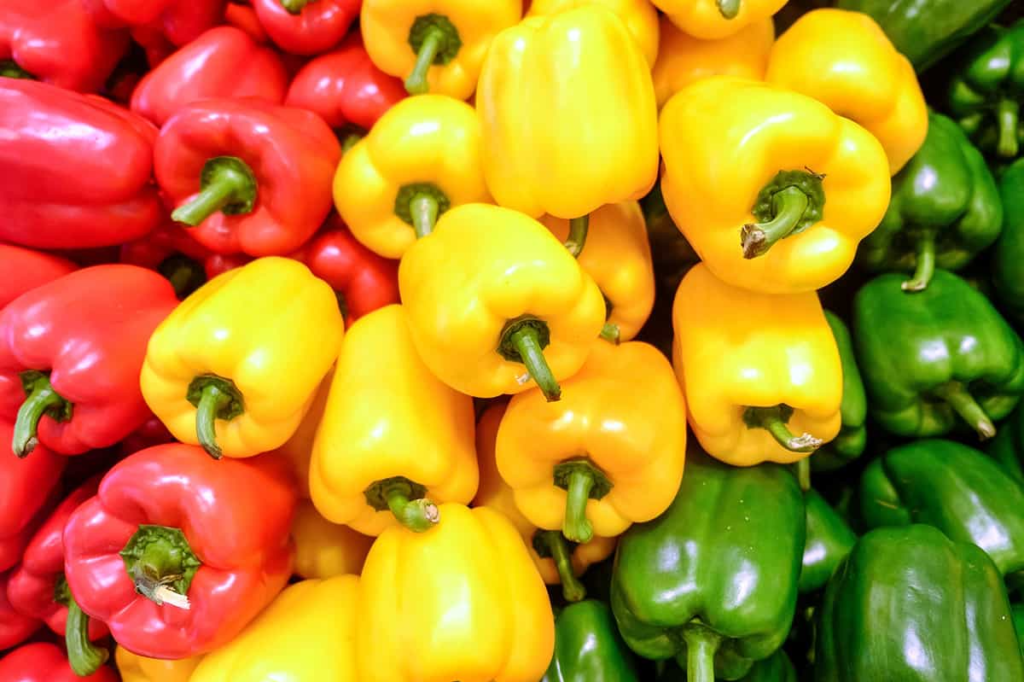
17. Alfalfa sprouts
Alfalfa sprouts are tiny powerhouses of nutrition. They are brimming with vitamins and minerals, including vitamin K for bone strength and vitamin C for immune function.
These little sprouts may also help lower cholesterol, regulate blood sugar, and even ease menopausal symptoms. They’re a great way to add a healthy crunch to salads, sandwiches, and wraps.
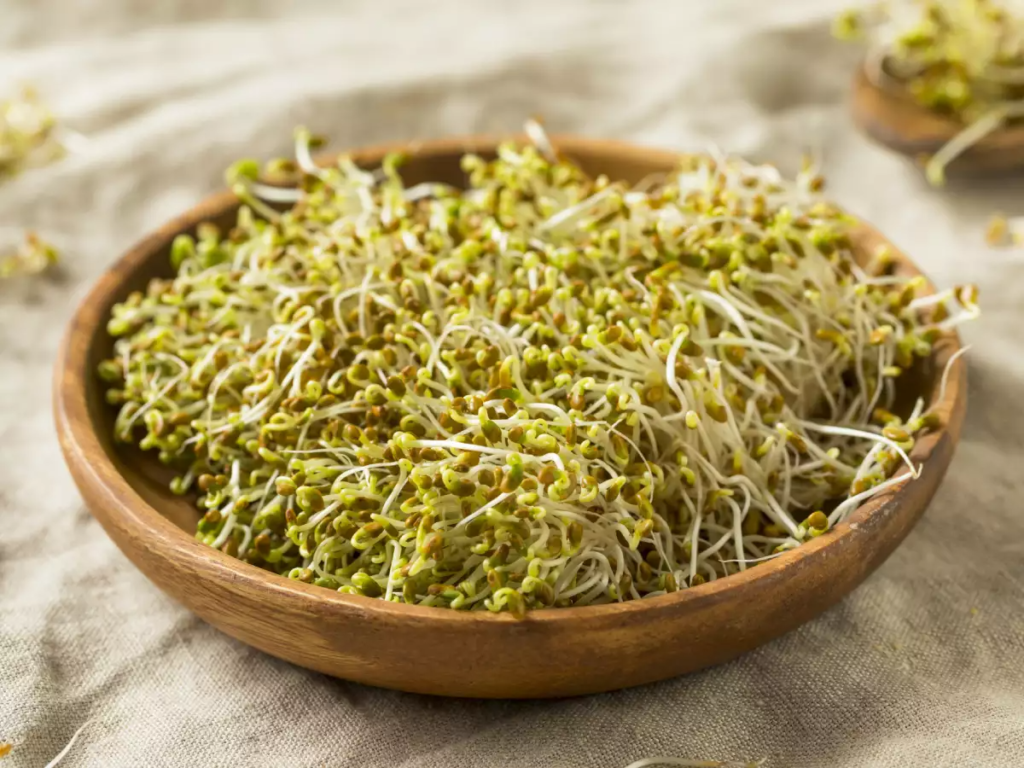
18. Red cabbage
Don’t underestimate the vibrant red cabbage. This veggie is a nutritional champion. It’s low in calories but brimming with vitamin C, fiber, and bone-strengthening vitamin K. The real star, though, is its anthocyanin content. These antioxidants fight cell damage and may help lower the chances of heart disease and certain cancers. Red cabbage is a delicious way to boost your health.
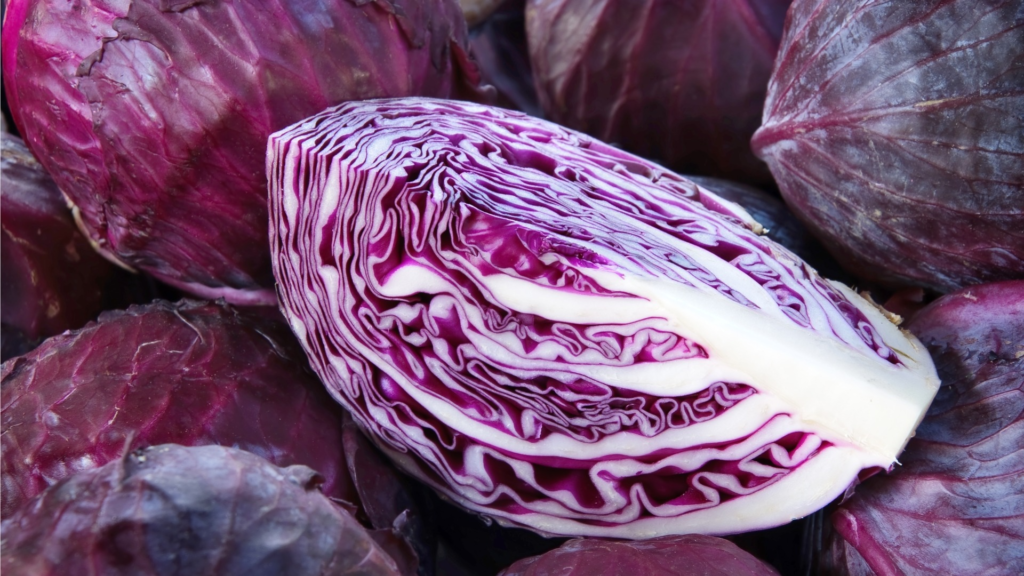
19. Asparagus
Asparagus is not just a spring favorite with its unique flavor. This slender spear is a nutritional powerhouse. It boasts a healthy dose of fiber, which promotes gut health and keeps you feeling satisfied.
Asparagus is also an amazing source of folate, which is essential for cell growth and improvement, especially during pregnancy. Plus, it is loaded with vitamins C and K, making it a well-rounded veggie that contributes to a strong immune system and overall health.
